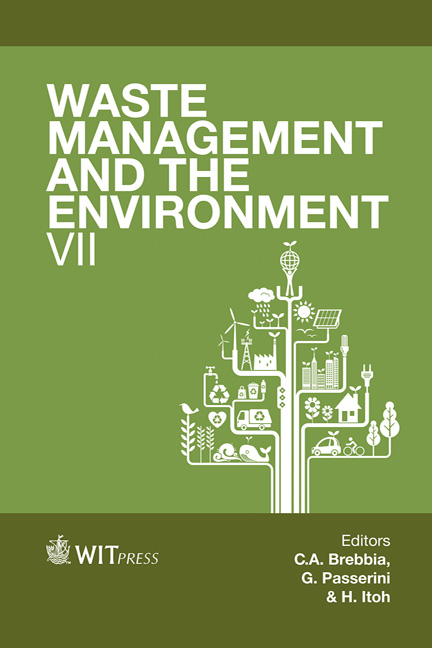An Assessment Of Groundwater Contamination Around A Solid Waste Disposal Site In Kano, Nigeria
Price
Free (open access)
Transaction
Volume
180
Pages
7
Published
2014
Size
318 kb
Paper DOI
10.2495/WM140271
Copyright
WIT Press
Author(s)
A. F. Ali & R. J. Young
Abstract
Open dumping and uncontrolled landfilling of solid wastes are the most widely practiced waste disposal methods in many cities of the less-developed regions, especially those in sub Saharan Africa. These practices are unsustainable and pose a major threat to the environment and public health. Of particular concern is the leachate produced at the disposal sites, which is concentrated with biological and chemical substances that could contaminate the soil, surface and groundwater sources in the environs. The effects of leachate percolation on the quality of groundwater sources is of great concern especially in sub Saharan Africa, where untreated self-supply groundwater options represent a major source of water supply for many inhabitants. Given this perspective, the physicochemical characteristics of some groundwater samples from wells around a major waste disposal site; Gyadi-gyadi in Kano metropolis, Nigeria, were examined. The samples were collected from the north, east, south and west directions around the disposal site and analysed for parameters that include: pH, turbidity, total dissolved solids, electrical conductivity, total alkalinity, total hardness, Ca2+, Mg2+, Na+, K+, NO3 -, SO4 2-, Cl-, Cu2+, Fe2+ and Mn2+. Significant concentrations of most parameters were revealed, often above the WHO recommended thresholds. Accordingly, some measures were highlighted towards protecting, preserving and sustaining groundwater quality as a strategic source of water supply in the area and beyond. Keywords: solid waste, open dumping, landfilling, leachate, groundwater contamination, water quality, Kano-Nigeria.
Keywords
solid waste, open dumping, landfilling, leachate, groundwater contamination, water quality, Kano-Nigeria.





